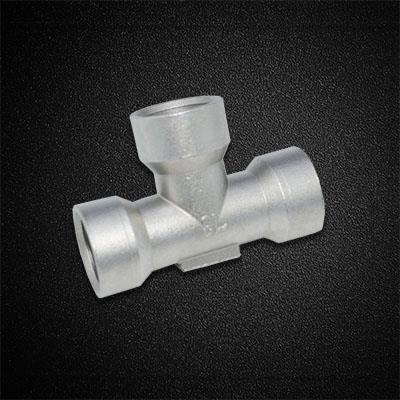For the important parts of hydropower units, most of them are made of aluminum alloy die-casting. The forging performance of this material is not strong, the fluidity is poor, the body can be gathered up and gathered very much, the welding stress is high, and it is easy to produce cracks. If there is a crack in the casting, not only the maintenance workload will be large, but the more serious repair costs will also be reported, causing major property losses. The main factor for casting cracks is the casting structure, forging process, etc. The following measures are usually selected to prevent in the production and manufacturing:
1. Casting structure.
In the forging process, it is necessary to comprehensively consider the structure, morphology, large, medium, wall thickness and connection of the casting and other factors that endanger the liquid and solid shrinkage of the casting, and select the main parameters of the appropriate processing technology to avoid welding defects such as shrinkage casting defects. The design of the pouring riser control system must be effective. If you want to choose cold iron and other processing technology countermeasures, it must be placed in an effective position. It is necessary to ensure the high density of the internal mechanism of the casting, but also to minimize the stress state.
2. Smelter
In the entire smelting process, reduce the moisture content of harmful elements such as PS as much as possible, and reduce the moisture content of NHO and other gases and impurities. According to the choice of low-phosphorus steel intermediate aluminum alloy, it can have very good practical effects.
3. Adiabatic insulation.
In accordance with the appropriate increase of the heat insulation time of the castings in the sand mold, the main operation is to control the unpacking temperature to be lower than 70 ℃ to ensure that the castings are fully liquid-solid packed in the sand mold to prevent external forces from causing stress conditions.
4. Falling out of sand
For the whole process of casting falling sand cleaning, it is forbidden to pour sand molds and castings during boxing, and it is forbidden to use strong external force impact methods such as box collision method to prevent cracks caused by the interaction of external force and thermal stress of the casting.
5. Laser cutting riser.
According to the casting standard, select the appropriate processing method of hot cutting and pouring riser to ensure that the start and end temperature of hot cutting is not less than 300℃. In practice, vibration laser cutting is selected for the oxygen cutting gun and the oxygen blowing tube. After oxygen cutting, the key parts should be covered with asbestos cloth or enter the furnace for quenching and tempering treatment. Due to the complicated structure of the upper crown and axial fan blades, the casting parts with unique countermeasures are adopted in the processing technology, and the secondary thermal cutting is selected.
6. Heating
To solve the defects of aluminum alloy die-casting, the heating standard must be adhered to. After the blow molding process is solved, the steel parts must be heated to above 108°C before actual operation. If the defect is found to have a large crack, firstly perform geostress quenching, and then solve it.
7. Improve quenching.
Heavy aluminum alloy die-casting improves the quenching process of final removal of ground stress at one time, and strictly controls the holding time and published temperature. Its goal method is to reduce the new stress generated in the processing process, more thoroughly eliminate the thermal stress of the casting, and avoid cracks.

Related News
- Precision casting mirror treatment and dewaxing casting
- Controlling the high quality of precision cast steel is the key
- Production Development of Guangdong Stainless Steel Casting Alloy Steel
- Characteristics of precision cast steel investment casting
- Dongguan precision casting kitchen hardware pendant varieties
- Processing steps and cleaning methods of Guangdong stainless steel castings
- Definition of Guangdong carbon steel casting
- Classification of Dongguan Precision Casting Special Casting
- Dongguan Precision Casting Factory
- What are the types of alloy steel casting hardware in Guangdong
- How to repair defects in precision castings
- How to choose pouring parts in precision casting
- What are the details that cannot be overlooked in Guangdong stainless steel casting
- How to identify precision casting 201 stainless steel
- Which formulas can be used to clean the surface of stainless steel castings
- Why is the carbon content of Guangdong stainless steel castings too high?
- Specific measures to avoid air bubbles in Guangdong stainless steel castings
- Some ways to reduce oxidation of stainless steel castings
- How to remove water from dewaxing castings
- How to pickling in precision casting
